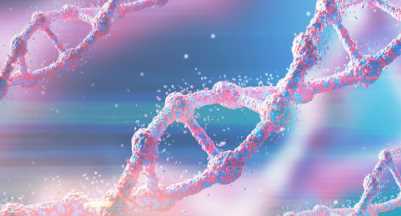The discovery of DNA stands as one of the most groundbreaking achievements in the history of science. It revolutionized our understanding of life, genetics, and heredity. In this blog post, we will explore the journey of scientific discovery that led to the unraveling of the genetic code of life and the profound impact it has had on various fields, from biology to medicine and beyond.
The Quest for Genetic Understanding
For centuries, scientists pondered the nature of heredity and the mechanisms behind the transmission of traits from one generation to the next. It was not until the mid-20th century that the mystery began to unravel. The pioneering work of several scientists laid the foundation for the discovery of DNA.
The Structure of DNA: Watson, Crick, and the Double Helix
In 1953, James Watson and Francis Crick, aided by the critical contributions of Rosalind Franklin and Maurice Wilkins, unveiled the structure of DNA. Their discovery of the double helix provided a blueprint for understanding how genetic information is stored and transmitted.
The double helix structure of DNA consists of two intertwined strands, each composed of a sugar-phosphate backbone with nucleotide bases—adenine (A), thymine (T), cytosine (C), and guanine (G)—forming the "rungs" of the ladder. The pairing of A with T and C with G creates a complementary code that allows DNA to replicate and transfer genetic information.
The Genetic Code: Deciphering the Language of Life
The discovery of the structure of DNA sparked a quest to decipher the genetic code—the language that translates DNA sequences into proteins. Through a series of groundbreaking experiments, scientists deciphered the code and uncovered the link between genes, proteins, and the traits they govern.
The Genetic Code consists of sequences of three nucleotides, called codons, that specify the amino acids used to build proteins. This universal code is shared by all living organisms, highlighting the fundamental unity of life.
Genomics and Personalized Medicine
The unraveling of the genetic code has had a profound impact on medicine and healthcare. The field of genomics, which focuses on studying and analyzing an individual's entire DNA sequence, has provided insights into the underlying genetic factors of diseases and opened new avenues for personalized medicine.
By understanding the genetic basis of diseases, scientists and healthcare professionals can develop targeted therapies and interventions. Genetic testing enables the identification of individuals who may be at risk for certain conditions, allowing for early intervention and preventive measures. Additionally, personalized medicine takes into account an individual's unique genetic makeup to tailor treatments for maximum efficacy.
Biotechnology and Genetic Engineering
The discovery of DNA and the elucidation of the genetic code have fueled advancements in biotechnology and genetic engineering. Scientists can now manipulate DNA to produce proteins of interest, engineer organisms for various purposes, and develop innovative biotechnological applications.
Through genetic engineering, we have seen the development of genetically modified crops with enhanced nutritional content, increased resistance to pests, and improved yields. Biopharmaceuticals, such as insulin and vaccines, can be produced through recombinant DNA technology. The possibilities of DNA manipulation are vast and hold great potential for addressing challenges in agriculture, healthcare, and environmental sustainability.
Ethical Considerations and the Future of DNA Research
With the power to manipulate DNA comes ethical considerations. The ability to edit the genetic code raises questions about the boundaries of genetic engineering, potential misuse, and ethical implications of altering the hereditary information of organisms.
As we continue to delve deeper into the mysteries of DNA, it is crucial to navigate these ethical considerations and ensure responsible and ethical use of genetic knowledge and technologies.




Leave Comment